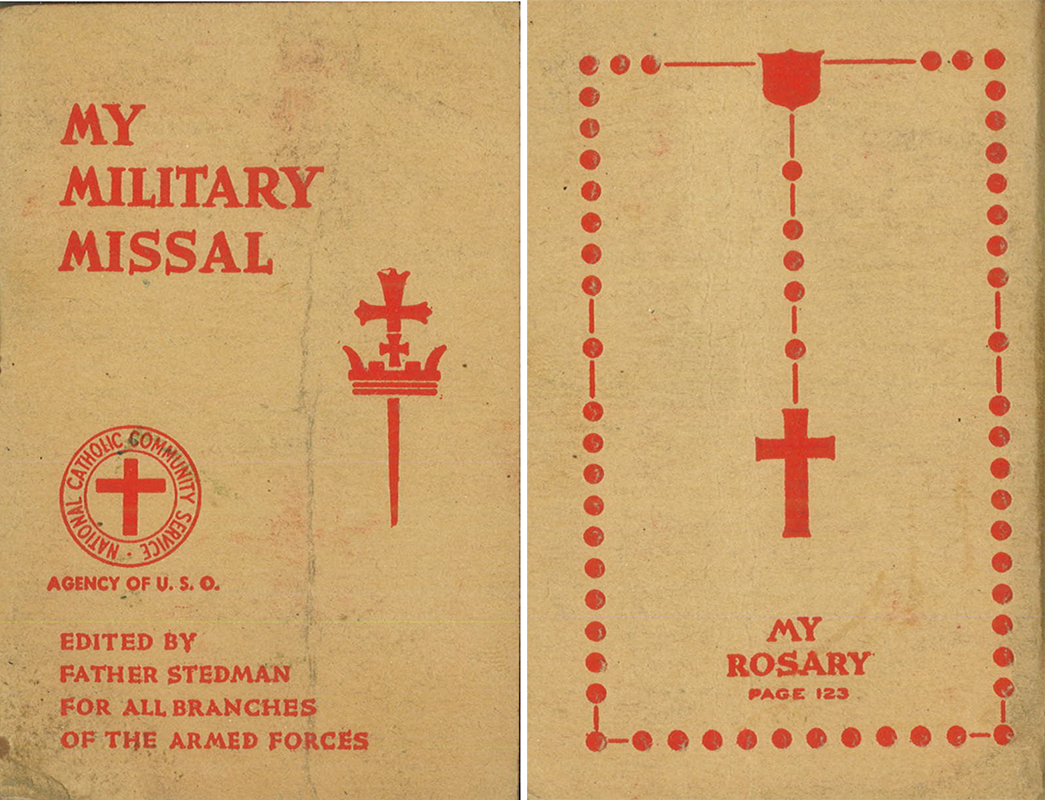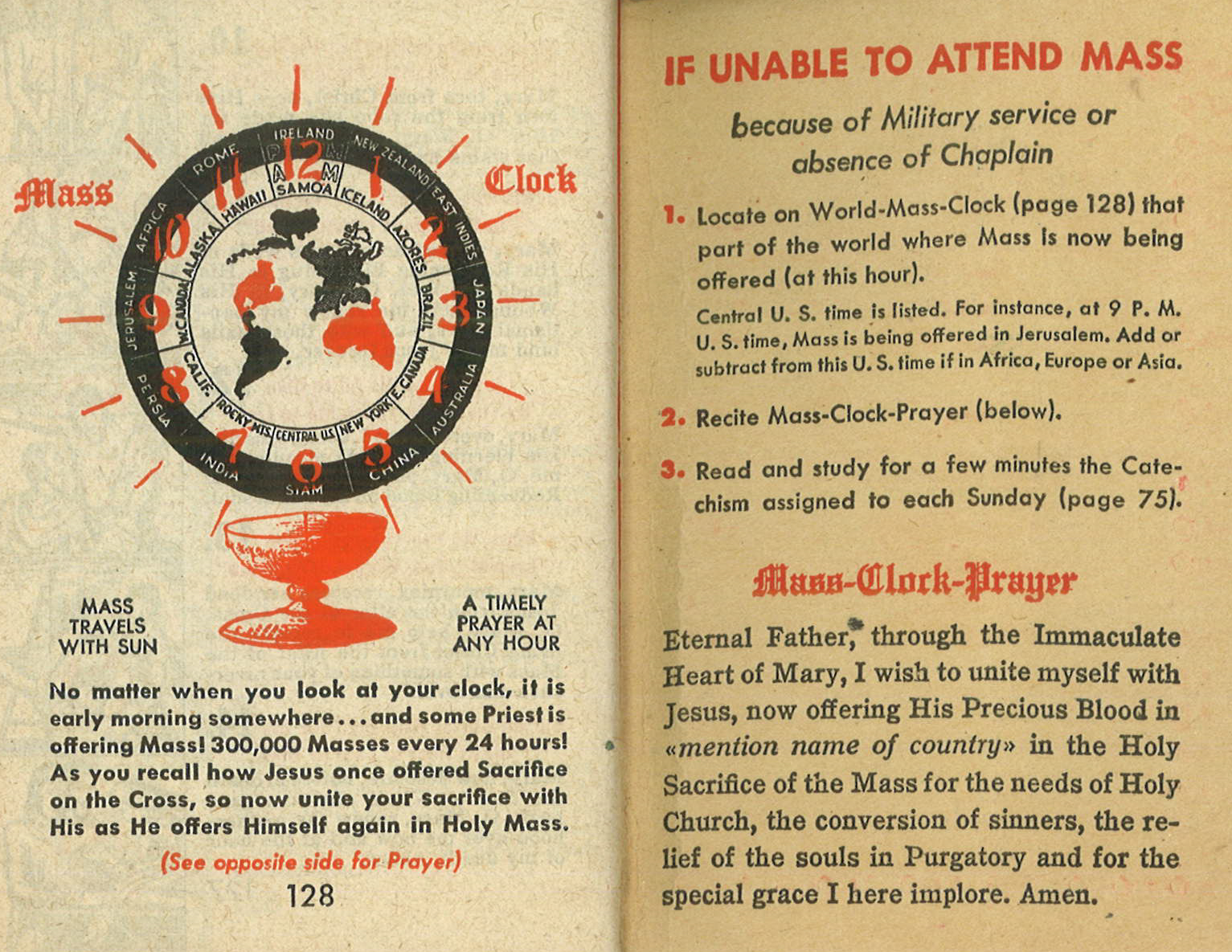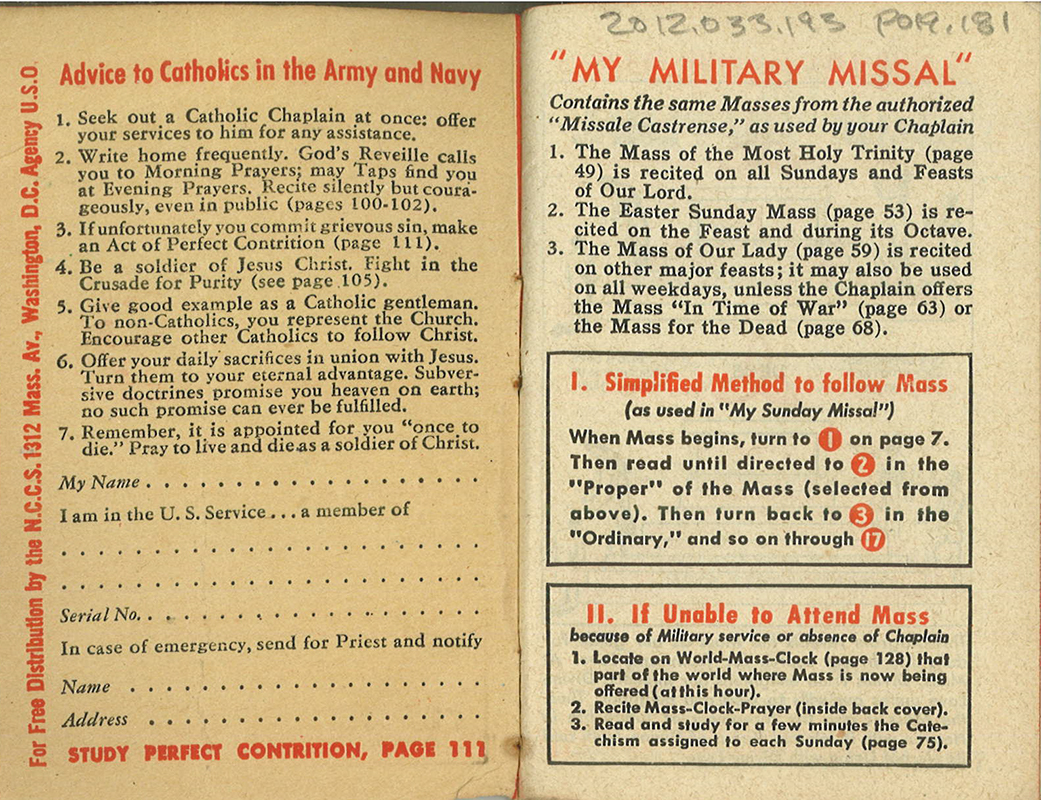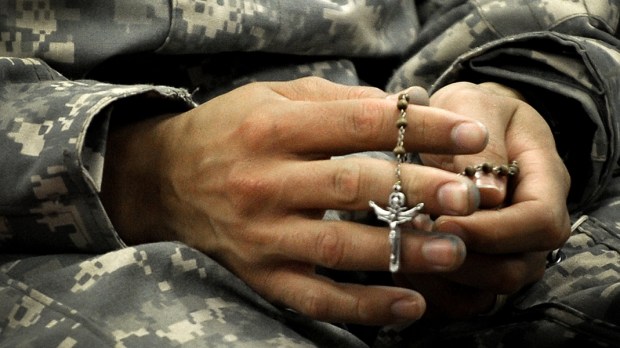Catholics around the world have recently come to know what it’s like to not be able to attend Mass in a church. Though many churches are open again after an initial lockdown during the first surge of the coronavirus pandemic, there are still strict limitations in many places, and some vulnerable populations are continuing to avoid public gatherings. And if a second wave of COVID-19 infections gets out of hand this fall and winter, many worshipers will go back to attending Sunday Mass through live-streaming on the internet.
This Veterans Day, it’s instructive to recall that in times of war, Catholic soldiers often found themselves in a similar predicament. They did not always have the luxury of attending Mass on Sundays and holy days. Though there have always been chaplains to accompany the troops, sometimes they are spread too thin. Sometimes, too, dangerous or difficult conditions have made it impossible for them to provide liturgical services.
Before soldiers and sailors had the benefit of internet technology to assist them in worship, Church leaders found other ways to help.
“Many men would carry a pocket version of the Psalms and the New Testament and would try and spend time reading passages from that,” Mike Strainic Sr., historian for the Catholic War Veterans of USA, told Aleteia. “Whenever a priest was available to a unit he would hear confessions, say Mass and sometimes give a special blessing — since the last sacrament was called the last rites, they tried to avoid that name. Priests in wartime also had the privilege of general absolution, so if there was not time for individual confessions, a priest could absolve a whole group so everyone could receive Communion before going into battle.”
In 1942, at the height of the Second World War, the Confraternity of the Precious Blood published My Military Missal, a prayer book intended for use by military personnel in wartime. The National Catholic Community Services, one of several agencies that joined together to form the United Service Organization (USO), distributed it.

As Stephanie Soule, Librarian/Archivist at the U.S. Catholic Special Collection at the University of Dayton, describes it, the 128-page My Military Missal was compact enough to be tucked into a rucksack or a pocket. “It has several unique features designed for its use by the armed forces,” Soule wrote in 2016, after she had discovered it in the stacks of the U.S. Catholic Special Collection. “First, on the back cover, the missal displays printed rosary beads. The beads are represented by raised bumps on the back of the cover, enabling a person to feel or trace their way along the Rosary and keep track of their progress through the prayer, similar to how he or she would with a string of rosary beads.”
Perhaps most intriguingly, the missal offered a “Mass-Clock” and “Mass-Clock-Prayer” for soldiers unable to attend Mass on Sunday. All one had to do was look at the “Mass-Clock,” which displayed all the time zones of the world, find a time zone where morning Masses were being offered, and then recite the “Mass-Clock-Prayer” to unite one’s prayers with the prayers of those Masses:
Eternal Father, through the Immaculate Heart of Mary, I wish to unite myself with Jesus, now offering His Precious Blood in [mention name of country] in the Holy Sacrifice of the Mass for the needs of Holy Church, the conversion of sinners, the relief of the souls in Purgatory and for the special grace I here implore. Amen.

It was important to know where in the world it was Sunday morning, because before the reforms of the Second Vatican Council, Canon Law required that Mass be offered in the morning hours (except for Christmas Midnight Mass and Holy Thursday). The Eucharistic fast began at midnight, so priests and anyone intending to receive Communion would have to do so in the morning, or go hungry all day.
Soule pointed out that the Missal also offered advice to Catholics in the Army and Navy, including the counsel to “Give good example as a Catholic gentleman. To non-Catholics, you represent the Church. Encourage other Catholics to follow Christ,” and “Remember, it is appointed for you ‘once to die.’ Pray to live and die as a soldier of Christ.”

In addition to being found at the University of Dayton, a personal copy of this Missal is in the holdings of the United States Holocaust Memorial Museum, whose website describes its significance:
Catholic prayer book used by 20-year-old Anthony Acevedo when he was a US Army medic and a German prisoner of war in the Berga an der Elster slave labor camp from December 1944 to April 1945. Tony was a Mexican-American who enlisted in the US Army in 1943. He served as a medic in Company B, 275th regiment, 70th Infantry Division. In January 1945, the company surrendered to the German Army during the Battle of the Bulge. They were sent to a prisoner of war camp, Stalag IX-B, in Germany, where Tony was tortured during interrogation. In February, he was transferred along with 350 fellow soldiers, either Jewish or considered undesirables, to Berga, a subcamp of Buchenwald concentration camp. Berga was a slave labor camp where prisoners toiled in underground tunnels and mines. Tony worked at the camp as a medic, and he was able to hide a diary and record the names and deaths of the many who died there. He did this out of duty and to honor his fellow soldiers.
Fr. Aidan Logan, OCSO, Vocation Director for the Archdiocese for the Military Services, USA, said there were at least three other pocket prayer books for Catholics in the military in World War II, and they all provided the full text of the Ordinary of the Mass along with traditional Catholic prayers.
But, he told Aleteia, “none of them have the ingenious Mass Clock.”

